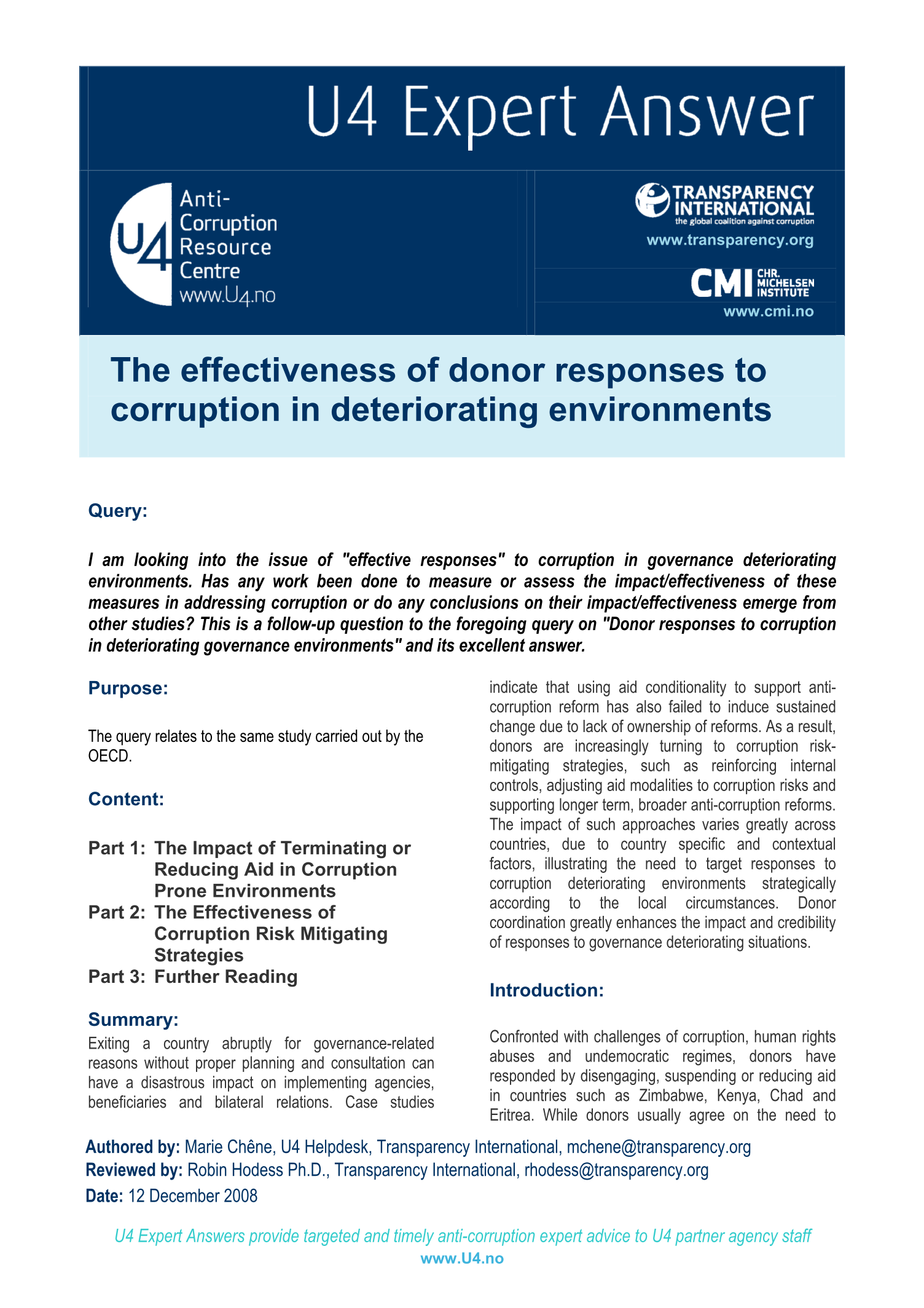U4 Helpdesk Answer
The effectiveness of donor responses to corruption in deteriorating environments
Exiting a country abruptly for governance-related reasons without proper planning and consultation can have a disastrous impact on implementing agencies, beneficiaries and bilateral relations. Case studies indicate that using aid conditionality to support anti-corruption reform has also failed to induce sustained change due to lack of ownership of reforms. As a result, donors are increasingly turning to corruption risk-mitigating strategies, such as reinforcing internal controls, adjusting aid modalities to corruption risks and supporting longer term, broader anti-corruption reforms. The impact of such approaches varies greatly across countries, due to country specific and contextual factors, illustrating the need to target responses to corruption deteriorating environments strategically according to the local circumstances. Donor coordination greatly enhances the impact and credibility of responses to governance deteriorating situations.

Cite this publication
Chêne, M. 2008. The effectiveness of donor responses to corruption in deteriorating environments. Bergen: U4 Anti-Corruption Resource Centre, Chr. Michelsen Institute (U4 Helpdesk Answer Helpdesk)
Disclaimer
All views in this text are the author(s)’, and may differ from the U4 partner agencies’ policies.
This work is licenced under a Creative Commons Attribution-NonCommercial-NoDerivatives 4.0 International licence (CC BY-NC-ND 4.0)